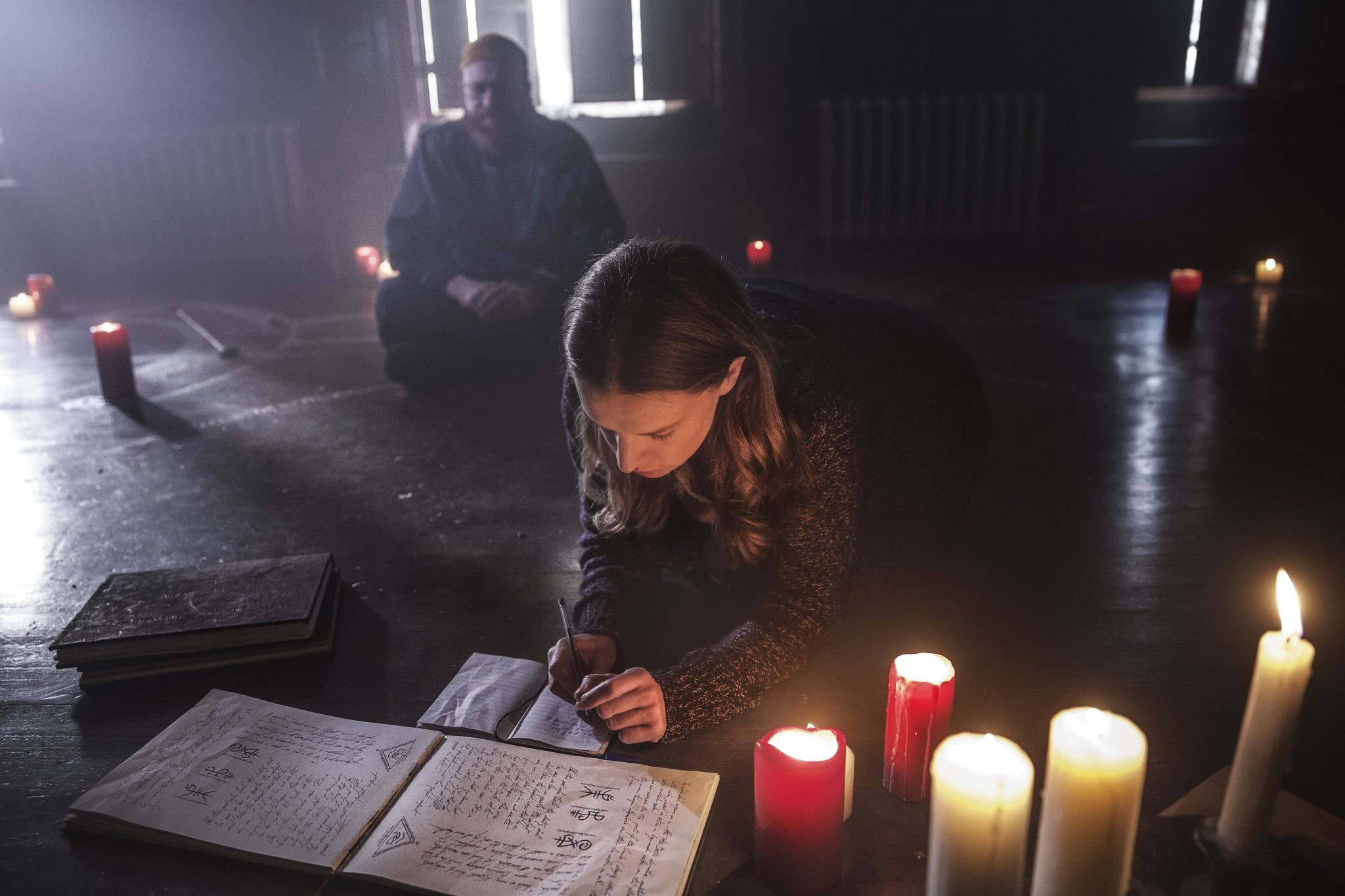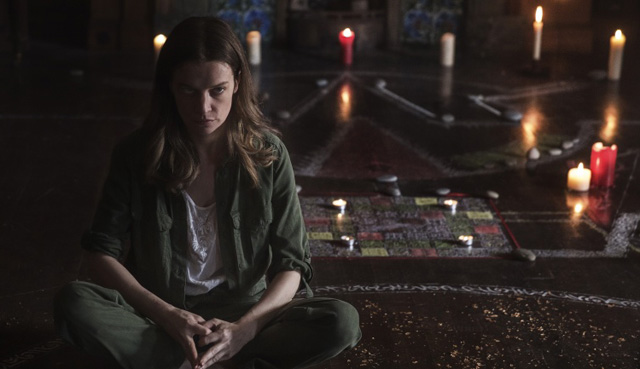Occult ritual has featured fairly prominently in the history of horror cinema. The novelist Dennis Wheatley established the template for much ritual horror in his 1934 The Devil Rides Out (filmed by Hammer in 1968): a lurid, melodramatic treatment of devil worship and black magic which was one-half condemnation, one-half titillation, all entertainment. The Wheatley school of occult schlock horror certainly has its place (well, this writer has an incorrigible fondness for it at any rate), but it is refreshing to find a completely original exploration of the subject in A Dark Song, the debut feature by Irish writer/director Liam Gavin. For Gavin, occult ritual is a laborious, disciplined operation and intense psychological process where the devil is in the details. As such, A Dark Song might be labelled the first occult procedural.
A Dark Song begins with a familiar premise that harkens back to Nicholas Roeg’s Don’t Look Now. Sophia (Catherine Walker) is wracked with guilt and grief over her murdered son. Apparently desperate to make contact with the spirit of the child, she solicits the assistance of taciturn working class magus Joseph (played by Ben Wheatley collaborator Steve Oram). Joseph believes he has a ritual which will grant Sophia her wish, but there is a catch: the ritual requires seclusion and intense concentration on Sophia’s part, and it could take months to achieve its goal. More ominously, Joseph insists that once the ordeal-like process begins, neither party can walk away until it reaches its conclusion.

With this minimal backstory, A Dark Song establishes its claustrophobic setting: a secluded country house in North Wales where the pair embark on the daunting ritual. Remaining initially ambiguous regarding the supernatural, the movie positions us in a situation which is deeply tense and unnerving on a psychological level. Completely cut off from the outside world, Sophia and Joseph are placed in a position of uneasy and uncomfortable closeness and intimacy. They are two damaged souls – a bullying master and secretive neophyte – whose sanity and physical safety are completely entwined, and completely at the mercy of whatever dark forces, psychological or supernatural, their shared enactment of the ritual unleashes.
In a hugely accomplished feature debut, director Liam Gavin gradually builds this ambiguous, claustrophobic sense of dread to genuinely visceral levels. Walker and Oram are both superb, and never falter in navigating the movie’s mixture of the ordinary and the uncanny. Cathal Watters’ cinematography has an understated beauty but crucially maintains the right kind of gritty verisimilitude that anchors A Dark Song in a queasily identifiable reality. Ray Harman’s score reminds me a little of Mica Levi’s similarly hair-raising work on Under the Skin. A Dark Song is a strong showing on all fronts, but the sure hand of writer/director Gavin cannot be underestimated. Making a virtue of a modest budget, his command of the material is always assured, and his style remains focused and understated, allowing the mood of the piece and the strength of the performances ample space to breathe.
Some viewers will possibly question the film’s conclusion, but in this regard, A Dark Song is true to its subject matter. The ritual depicted in the movie is closely modelled on a real spiritual practice which 19th and 20th-century occultists derived from an old manuscript called the Book of Abramelin. In its modern interpretation, the function of the lengthy ritual process was to guide the initiate through a kind of personal psychological abyss, the other side of which they would encounter what could be interpreted either as a supernatural being or simply their own purified and perfected better nature. Whether the conclusion is successful or not (I personally liked it), A Dark Song shows considerable artistic nerve in dramatising and ultimately visualising this ambiguity between the psychological and the supernatural. This is a worthy addition to the growing cannon of distinctive and challenging horror cinema which has begun to revitalise the genre in the last few years

